What 52,000 people think about work today
PwC Hopes & Fears Survey 2022
In this article we explore some of the key findings of this year’s PwC Global Workforce Hopes and Fears Survey in which over 52,000 individuals across 29 industries in 44 countries were surveyed to explore these issues.
A top concern for HR professionals and business leaders across Malta, and also globally, is the availability of talent. Workforce shortages have hit virtually every industry to one extent or another, leaving organisations often operating at the mercy of incoming applicants and overstretching internal employees.
This workforce shortage has taught employers not to take their current workforce for granted. Yet many organisations risk doing exactly that - some of the ways that this might be done is by not paying close enough attention to employees with specialised skills - who are at elevated risk of quitting, by failing to support employees who seek personal fulfilment and meaning at work, or by missing opportunities to build the trust that often leads to positive outcomes at the personal, professional and even societal levels.
Section 1: The Pressure on Pay
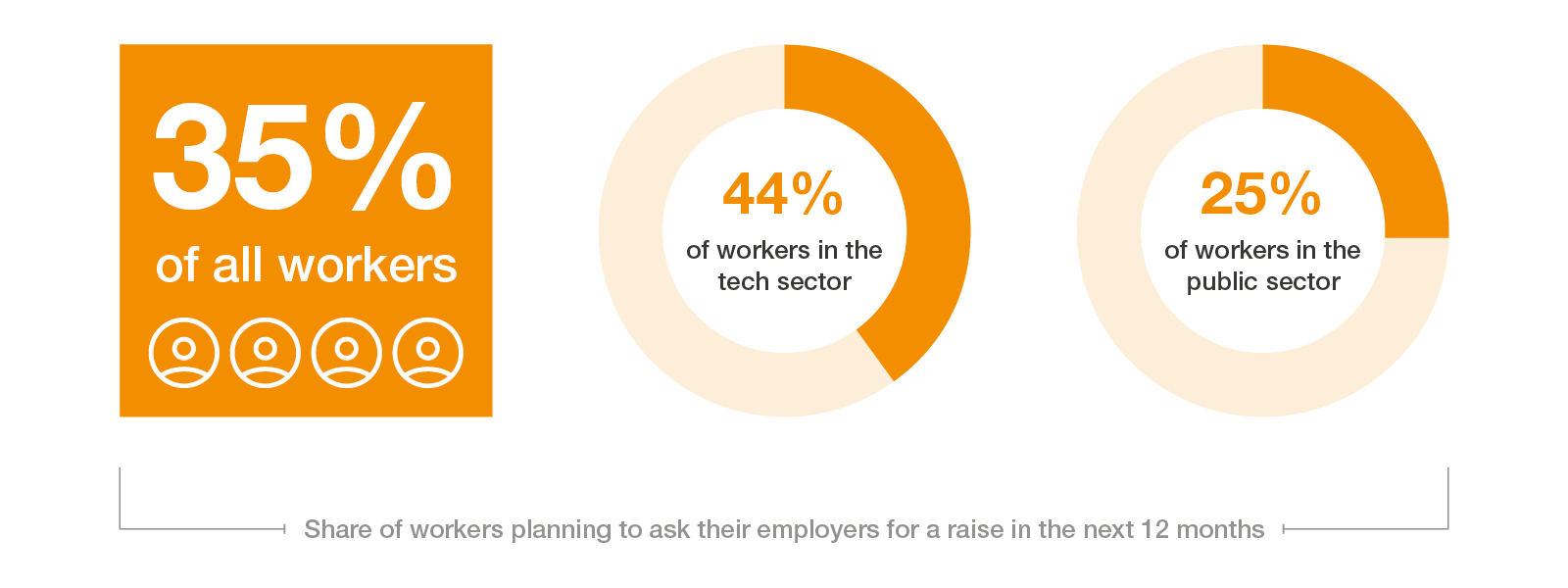
The study found that 35% of all employees are planning to ask their employers for a raise in the next 12 months. This figure is even higher, at 44%, in the tech sector.
Amongst these, women were found to be less likely than men to feel satisfied with their remuneration package. However they are also less likely to ask their current employer to ask for a raise or a promotion.
While pay (71%) is the main reason, purpose (69%) and authenticity (66%) closely follow in the top three factors of when considering a change in work environment.
Section 2: Empowerment; Specialisation and Scarcity
Employees with specialised training are in demand - and your employees know it. Work that requires specialist skills was also found to empower and be a determining factor in an employee’s likelihood of asking for a promotion or a raise, of having disposable income, feel listened to by superiors at work, and feel satisfied with their job. It also increases the likelihood of the employee recommending their employer as a place to work.
Workers with specialised skills also feel more empowered
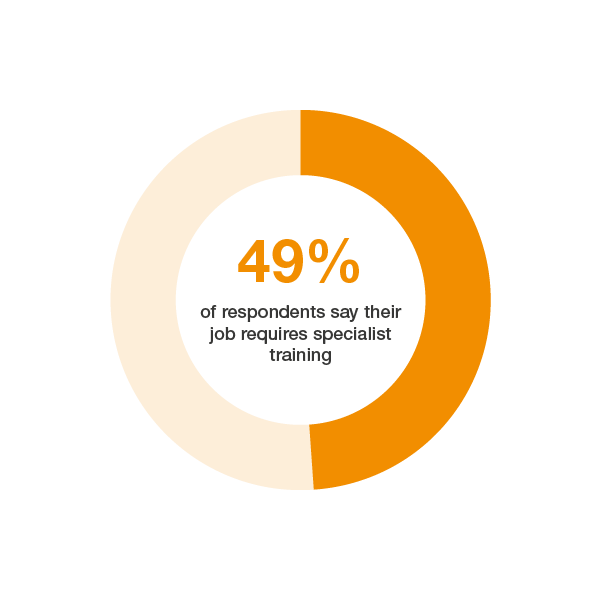
Employees with scarce skills within their country feel more empowered. Nearly three-fifths (29%) of employees said their country ‘lacks people with the skills to do my kind of work’. This group is more empowered in every dimension surveyed.
Workers with scarce skills within their countries feel more empowered
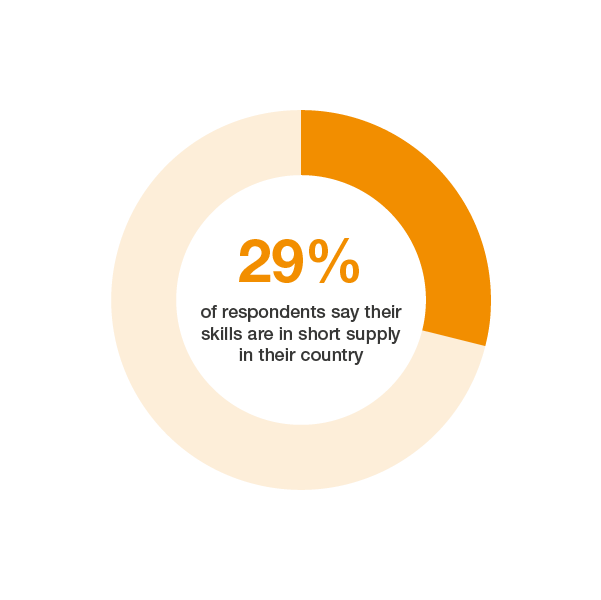
The study also found that younger workers are also more concerned that their job will be replaced by technology in the next three years (38%, compared to 19% of Baby Boomers (people born between 1946-1964)) and that they will not get sufficient training in digital and technology skills from their employer (44%, compared to 29% of Baby Boomers).
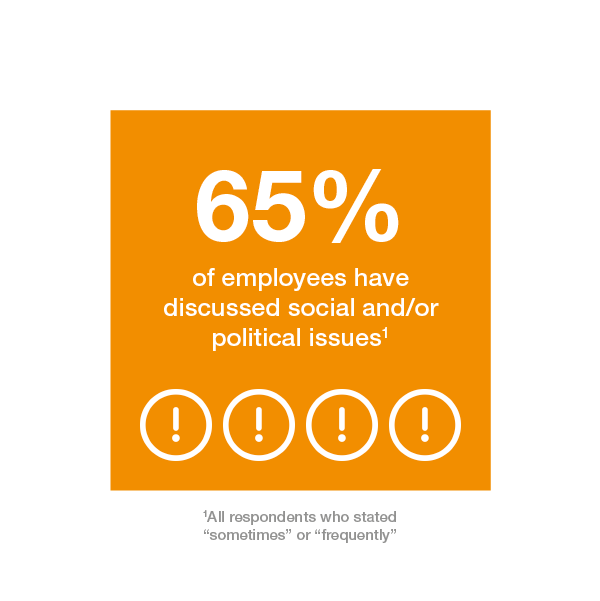
Section 3: Political and social issues in the workplace
Organisations operate in an increasingly polarised world, where political and social issues hold intense influence. Some managers tend to shy away from these topics in the workplace, hoping to avoid what could be divisive conversations.
However the study found that 65% of employees have discussed social and/or political issues in the workplace. These conversations have led to a better understanding of each other (41%), more open and inclusive work environments (34%), and increased empathy (28%).
Section 4: The demand for transparency on societal goals
Employees want organisations to look beyond financial performance. In this section, more than half of the respondents have said that their employers’ transparency on societal issues is of great importance to them - with transparency on safety and social issues ranking the highest. This is likely an effect of the pandemic and its impact on the employees’ psyche. Transparency on economic impact, workplace diversity and environmental impact (including climate) closely followed employee Health & Safety in popularity. Lack of clarity about environmental issues often stems from a lack of communication from managers. Furthermore, while organisations are taking steps to reduce their carbon footprint, often measures such as net-zero pledges are seen as abstract to employees.
Section 5: The future of hybrid working
In this survey, 54% have claimed that they are able to work remotely. Moreover, 63% have said that they prefer a mixture of in-person and remote work. Similarly, 63% expect their employers to offer a mixture of in-person and remote working for the next 12 months. Essentially, the study found that hybrid work is here to stay, for those employees who can work remotely. The precise ratio of office time and at-home time will vary, but organisations need to experiment, adapt and be flexible.
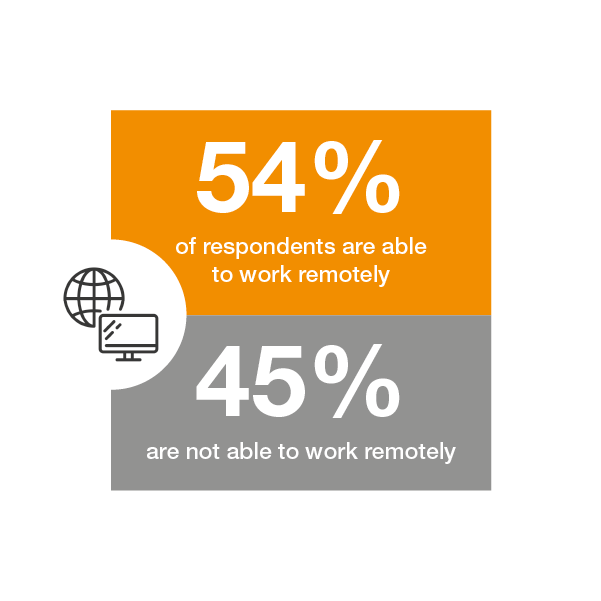
Conclusion
In today’s environment, leaders are facing numerous disruptions, including inflation, a post-pandemic environment, and a number of fast-moving geopolitical and social crises. In order to succeed in this environment, organisations must do their utmost to have a workforce that is well engaged, motivated and eager to contribute.
Organisations need to gather insights and data on employee sentiment on the topics identified in this report. Such data can be gathered through different means such as employee engagement surveys, frequent pulse surveys and meaningful conversations between managers and employees. These insights can then be used to develop workforce strategies that are aligned with their business needs.
Contact us














